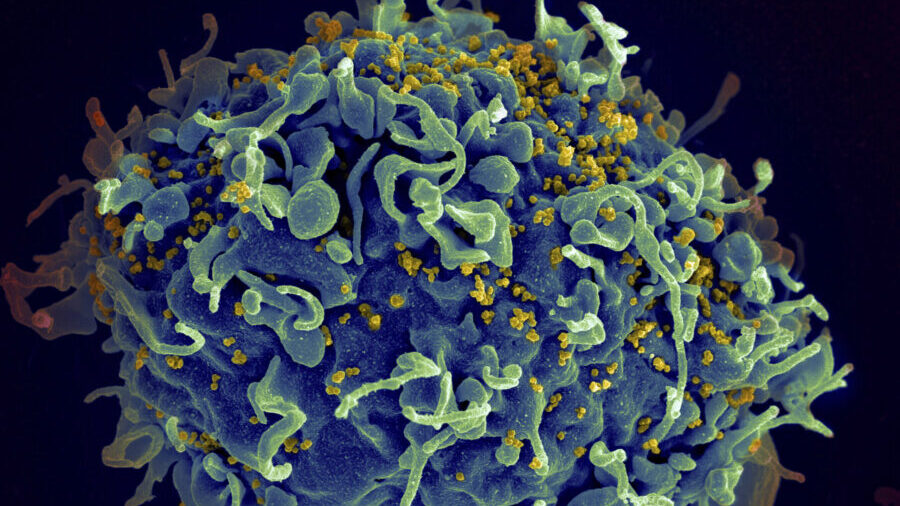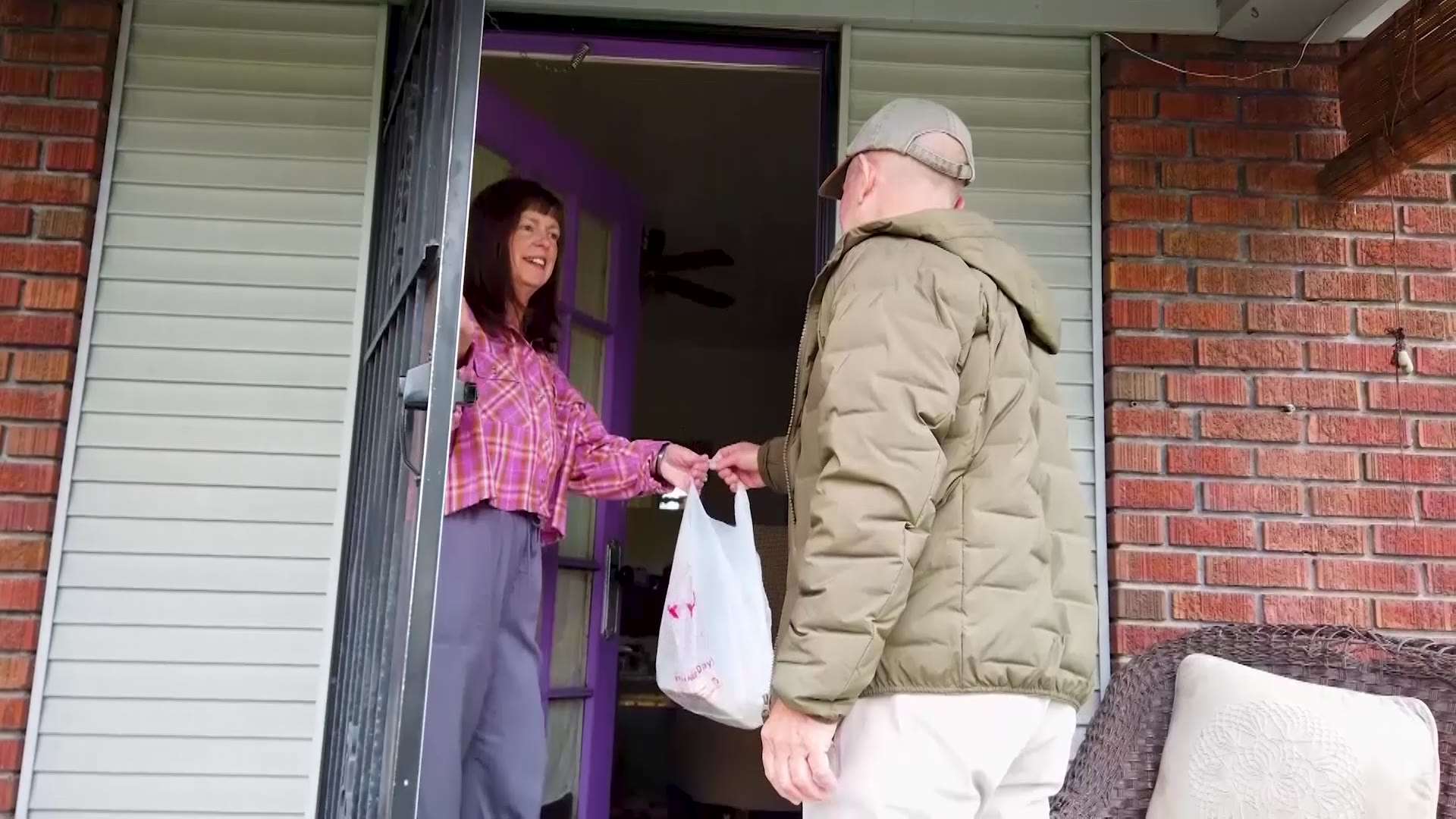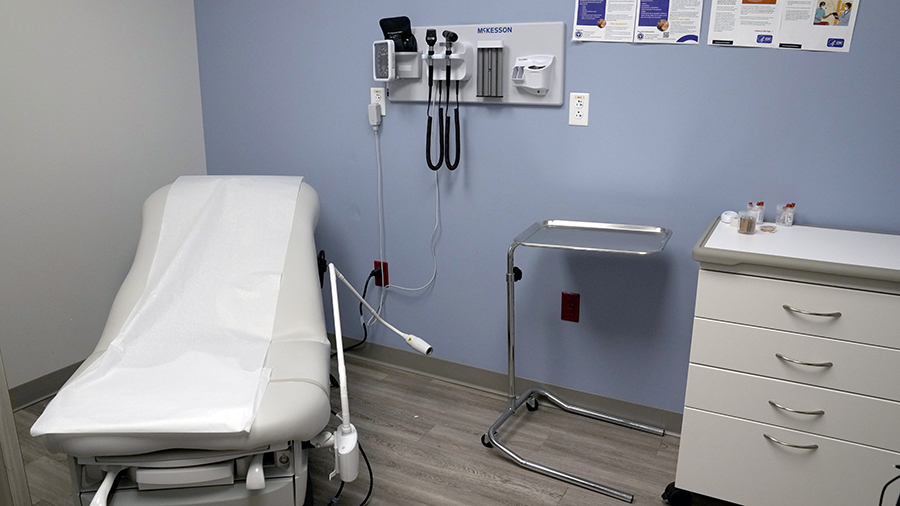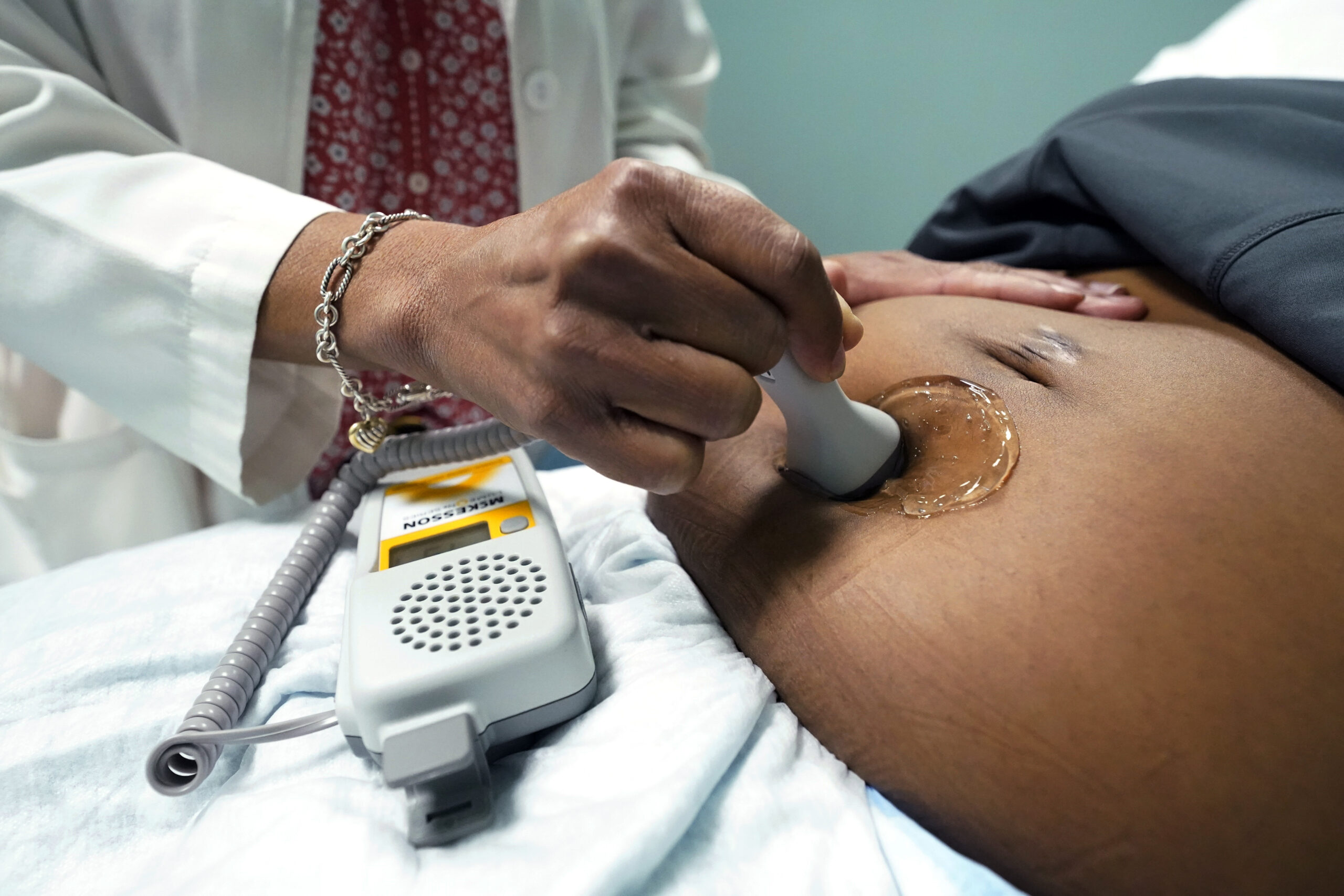‘Tip of the iceberg’: Lehi E. coli outbreak could be hundreds of cases
Aug 28, 2023, 6:44 PM | Updated: 6:50 pm
LEHI, Utah – The state health department released more information on the scope of the E. coli outbreak in Lehi that has resulted in 12 lab-confirmed cases and six hospitalizations.
All six of the hospitalizations have been children and teens between the ages of 1 and 15 years old, according to BreAnne Osborn, an epidemiologist with the Utah Department of Health and Human Services.
Osborn said the strain of E. coli found in Lehi’s pressurized irrigation water, E. coli O157, is particularly dangerous for children and can cause kidney damage, which was the case for a 3-year-old girl recently hospitalized for 13 days. Osborn also said it’s rare to have a cluster of E. coli cases like what’s happening in Lehi.
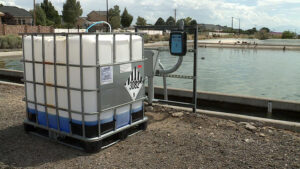
The pressurized irrigation system in Lehi, Utah has been found to contain E. coli with a dozen confirmed cases. (Ladd Egan/KSL TV)
“That, in and of itself, is really concerning to us,” she said. “That’s a lot of people. We don’t see that hardly at all. So this is a fairly large outbreak and it’s likely the tip of the iceberg.”
Based off of the 12 confirmed cases, Osborn said the health department estimates there could be up to 300 additional cases.
“There’s a lot of people who maybe had some diarrhea for a day or two, they might have had some mild abdominal cramping that wasn’t too concerning and didn’t bring them into the doctor,” she said. “So, they just got better on their own and we don’t hear about it.”
Lehi City and the state health department recommended that Lehi residents stop watering their lawns. Osborn warned that residents’ shoes could track E. coli inside homes where it could expose children playing on the floor.
“It’s really something to take seriously,” she added.
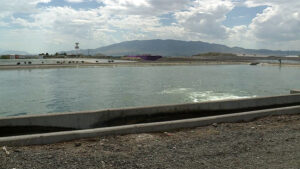
The pressurized irrigation system in Lehi, Utah has been found to contain E. coli with a dozen confirmed cases. (Ladd Egan/KSL TV)
Anything grown in Lehi residents’ yards or gardens with irrigation water needs to be cooked to 160 degrees to kill the bacteria. Last week, Lehi’s water department announced that it had shock treated two irrigation water reservoirs.
“It is a little bit of a shock to me that this strain — that we’ve never dealt with before — is here and we are dealing with it now,” operations supervisor Matt Dalton told KSL TV at the time.
He said it will be difficult to pinpoint the source.
“We don’t know where it came from and we’re aggressively working to try to remedy the situation by treatment and sampling and continued monitoring,” he said. “Lehi City receives so much surface water from so many different sources that finding that source would be extremely difficult.”
Dalton said the pressurized irrigation system cannot be shut off because it’s the same water that’s supplied to the city’s fire hydrants.
“The CDC has advised that it’s not safe to have pets and children out on the lawn after it’s been watered,” he said. “They’ve recommended to not use the pressurized irrigation at all.”
Lehi City and the CDC released the following guidelines:
- Do not drink irrigation water.
- Do not water lawns or gardens.
- Do not use irrigation water in recreational activities (bounce houses, pools, slip-n-slides).
- Check for water advisory signs before swimming in nearby reservoirs.
- Use caution when allowing children to play on lawns or gardens that have been watered with irrigation water. It’s advised to watch the children to be sure their hands that might have touched lawns do not go in their mouths.
- Children should wash hands after playing outside. E. coli can still be present when the lawn isn’t wet.
- When tending to lawns or gardens, wear gloves and practice hand hygiene.
- Exercise caution when consuming uncooked produce from personal gardens that have been watered using irrigation water. Fruits and vegetables like these should be consumed only after being cooked. Simply washing may not eliminate the bacteria.
Signs of E. coli infection include diarrhea (often bloody), abdominal cramps, nausea, and vomiting. Severe cases can lead to kidney failure, especially among young children, the elderly, and individuals with compromised immune systems. It is advised to contact a health care provider if experiencing any of the above symptoms.
E.-coli-Q & A from Lehi by LarryDCurtis on Scribd



